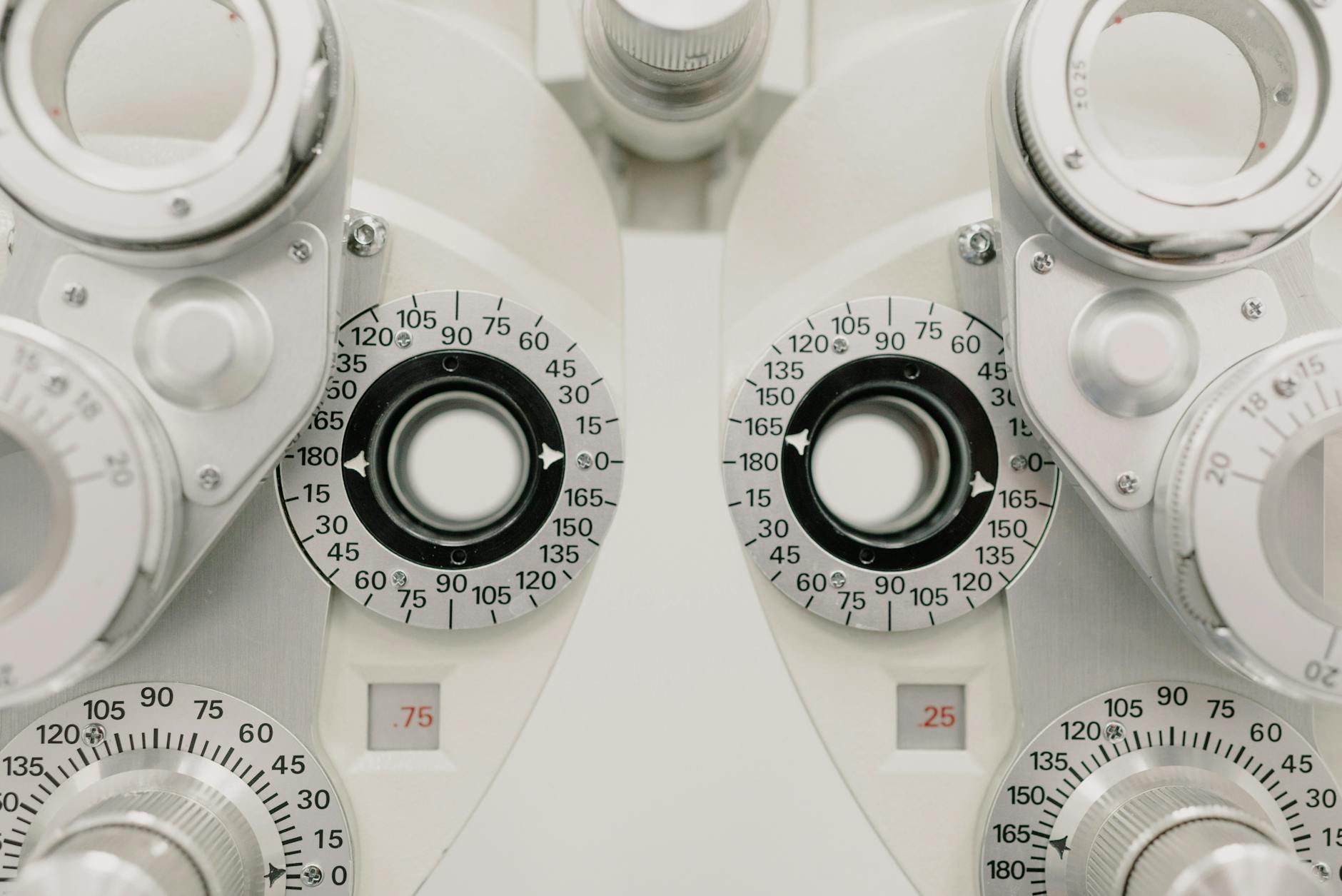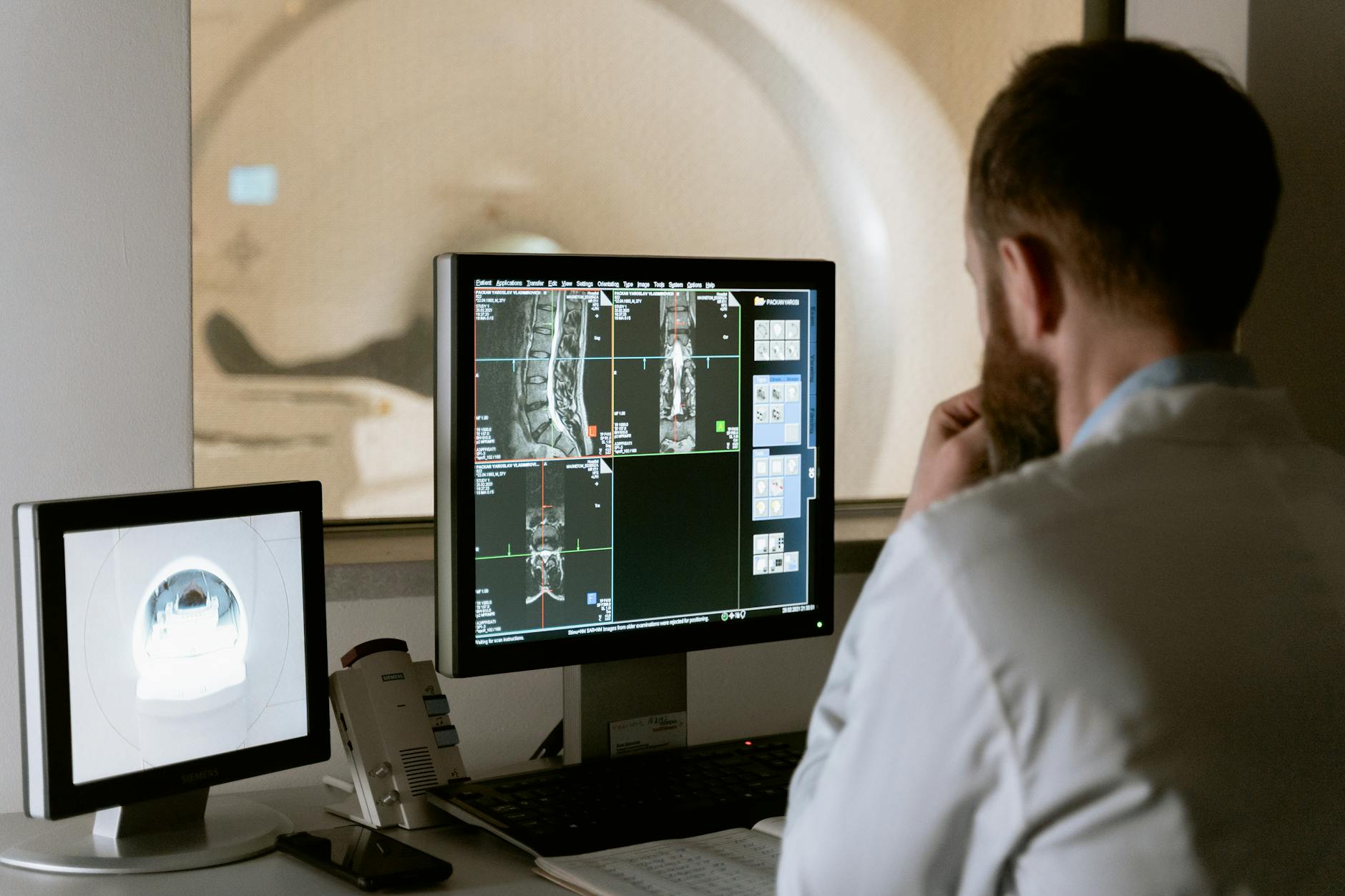
Imagine a world where diagnosing diseases is faster, treatments are more personalized, and patient outcomes are dramatically improved. This isn’t science fiction; it’s the impact of AI innovation in healthcare today. AI isn’t just a buzzword—it’s transforming how doctors diagnose, treat, and even prevent illnesses. From spotting early signs of cancer in medical images to predicting patient deterioration, AI is making healthcare smarter, more efficient, and more accessible.
The benefits are clear: AI can analyze vast amounts of data in a fraction of the time it would take humans, reducing human error and saving lives. Key areas like medical imaging, predictive analytics, and personalized medicine are already seeing significant advancements thanks to AI. So, why does this matter to you? Because these innovations mean quicker diagnoses, better treatment plans, and ultimately, better health outcomes for everyone.
Enhancing Diagnostic Accuracy
AI technologies are transforming healthcare by improving the accuracy of medical diagnoses. By analyzing immense amounts of data quickly and precisely, AI helps doctors make more informed decisions, leading to better patient outcomes. Let’s explore two primary ways AI is enhancing diagnostic accuracy.
AI in Medical Imaging
AI algorithms are revolutionizing medical imaging. They analyze images like X-rays, MRIs, and CT scans to detect abnormalities with high precision. Imagine your doctor using an AI tool to scrutinize your MRI scan. This tool can point out potential problem areas that the human eye might miss.
 Photo by Ksenia Chernaya
Photo by Ksenia Chernaya
These AI systems can:
- Identify early-stage diseases: AI can detect early signs of diseases like cancer, ensuring timely intervention.
- Reduce human error: Because AI analyzes every pixel of an image, it minimizes the chance of missing critical details.
- Speed up the process: AI can process images faster than humans, leading to quicker diagnoses and treatment.
For more information on AI in medical imaging, check out How AI-Powered Medical Imaging is Transforming Healthcare or the AI Imaging & Diagnostics research by Google.
Predictive Analytics for Disease Detection
Predictive analytics is another exciting application of AI in healthcare. These AI systems analyze patient data to predict the likelihood of diseases. For instance, they can forecast if someone is at risk of heart disease, enabling early treatment and lifestyle changes.
Here’s how predictive analytics helps:
- Early intervention: By predicting diseases early, doctors can start treatment before symptoms worsen.
- Personalized treatment plans: AI can suggest customized treatment plans based on the patient’s data.
- Resource allocation: Hospitals can better allocate resources by knowing which patients are at higher risk.
Consider the benefits of Predictive Analytics in Healthcare, which offers insights into how hospitals can utilize these analytics for better patient care.
AI’s role in enhancing diagnostic accuracy cannot be overstated. By using AI in medical imaging and predictive analytics, doctors are better equipped to diagnose and treat diseases, providing patients with the best possible care.
Improving Treatment Plans
AI is revolutionizing how we approach treatment plans in healthcare. By leveraging vast amounts of data, AI can tailor treatments to individual needs and hasten the development of new drugs. Let’s dive into two key areas where AI is making a significant impact: personalized medicine and drug development.
Personalized Medicine
AI is transforming the field of personalized medicine by tailoring treatments to individual patients based on their genetic information and lifestyle. This means doctors can move away from one-size-fits-all treatments and instead offer more precise therapies.
 Photo by Valeria Boltneva
Photo by Valeria Boltneva
Here are some benefits of using AI in personalized medicine:
- Genetic Analysis: AI can analyze a patient’s genetic makeup to understand predispositions to certain diseases.
- Lifestyle Factors: It considers individual lifestyle choices, such as diet and exercise, to personalize treatments.
- Improved Outcomes: By tailoring treatments, patients often experience better results with fewer side effects.
AI can accurately process extensive patient data to create these detailed treatment plans. For more details, check out this NCBI article on personalized medicine or read about the role of AI in personalized medicine.
Optimizing Drug Development
The road to discovering new drugs is long and expensive. Traditionally, it can take years and billions of dollars to bring a new drug to market. AI is streamlining this process by predicting how different compounds will interact with the body, thus accelerating drug discovery and reducing costs.
AI contributes to drug development by:
- Identifying Potential Drugs: AI can sift through vast amounts of chemical data to find promising compounds.
- Predicting Drug Interactions: It can predict how these compounds will interact with proteins and other substances in the body.
- Optimizing Clinical Trials: AI can help design more efficient clinical trials, leading to faster approval times.
For a deeper understanding of AI’s role in drug development, explore this detailed article by the FDA or read about AI in drug discovery by Nature.
AI is paving the way for more effective and efficient treatment plans, making healthcare more personalized and innovative than ever before.
Streamlining Healthcare Operations
AI is transforming healthcare operations by automating administrative tasks and improving patient management. By streamlining these areas, healthcare providers can offer better care and reduce the burden on staff.
Automating Administrative Tasks
AI is changing the way healthcare providers manage administrative tasks. Think about the last time you had to schedule an appointment or deal with a billing issue. That process often involves a lot of back-and-forth communication, which can be time-consuming and frustrating.
 Photo by Mikhail Nilov
Photo by Mikhail Nilov
AI can automate these routine tasks, which helps reduce the workload on healthcare staff. Here are some examples:
- Appointment Scheduling: AI-based systems can manage scheduling by finding optimal time slots, sending reminders to patients, and rescheduling missed appointments.
- Billing and Coding: AI can automate billing processes by detecting errors, ensuring accurate coding, and handling insurance claims efficiently.
- Record Keeping: Electronic health records (EHRs) can be updated and maintained using AI, reducing manual data entry errors and speeding up information retrieval.
For instance, AI-powered automation in healthcare supports staff by freeing up their time to focus more on patient care. Learn more about this here.
Improving Patient Management
Managing patient data and streamlining care processes are crucial for healthcare providers. AI systems can enhance these processes significantly.
AI-driven systems can analyze patient data to predict patient needs, monitor ongoing treatment outcomes, and flag potential issues before they become serious. Here’s how AI can improve patient management:
- Data Analysis: AI can quickly process large volumes of patient data to identify trends and patterns that might be missed by human analysis.
- Personalized Care: AI can help tailor treatment plans based on individual patient data, including medical history, genetic information, and lifestyle factors.
- Proactive Monitoring: AI can continuously monitor patient vitals and alert healthcare providers to any signs of deterioration, allowing for quicker interventions.
Consider how AI improves patient outcomes through better management strategies as highlighted in this article.
By automating tasks and improving patient management, AI is making healthcare more efficient and effective. These innovations mean that healthcare providers can spend less time on paperwork and more time caring for their patients.
Enhancing Patient Experience
AI is revolutionizing healthcare by enhancing the overall patient experience. Let’s explore how technology like AI-powered virtual assistants and remote monitoring are transforming patient care.
AI-Powered Virtual Assistants
AI-powered virtual assistants and chatbots are becoming more common in healthcare, offering instant support and information to patients. Imagine having a virtual assistant that can answer your questions about symptoms, manage appointments, or provide reminders to take your medication. These intelligent systems are designed to make the patient’s journey smoother and more efficient.
 Photo by Google DeepMind
Photo by Google DeepMind
Here are some key benefits of AI-powered virtual assistants:
- Instant Information: Patients can get immediate answers to their medical queries.
- 24/7 Availability: Unlike human staff, these assistants are available around the clock.
- Appointment Management: Virtual assistants can help patients schedule, reschedule, or cancel appointments with ease.
For more details on how virtual assistants are transforming healthcare, check out this article or this one.
Remote Monitoring and Telehealth
Remote patient monitoring and telehealth services have seen significant growth, particularly during the COVID-19 pandemic. AI plays a crucial role in these services by enabling doctors to monitor patients’ health remotely, analyze their vitals, and provide timely interventions without needing an office visit.
Remote monitoring involves using wearable devices and sensors to collect patient data, which is then analyzed by AI algorithms. This real-time data allows healthcare providers to track patients’ conditions closely and respond quickly if there are any alarming changes.
 Photo by Gustavo Fring
Photo by Gustavo Fring
Benefits of AI in remote monitoring and telehealth include:
- Continuous Monitoring: Patients with chronic conditions can be monitored continuously, reducing hospital visits.
- Early Detection: AI can detect early signs of deterioration and alert healthcare providers.
- Convenience: Patients receive care from the comfort of their homes.
To learn more about AI in remote patient monitoring, visit this article or this study.
By incorporating AI-powered virtual assistants and remote monitoring systems, healthcare providers are significantly enhancing the patient experience, making care more accessible, efficient, and personalized.
Ethical Considerations and Challenges
As AI continues to transform healthcare, it’s critical to address the ethical considerations and challenges that come with its implementation. While AI has the potential to revolutionize patient care, it also raises important ethical issues that need thoughtful attention.
Data Privacy and Security
 Photo by Google DeepMind
Photo by Google DeepMind
When it comes to AI in healthcare, safeguarding patient data and ensuring privacy is paramount. Patient information is highly sensitive, and any breach can have serious consequences. AI technologies rely on vast amounts of data to function effectively, which means they must handle large datasets that include personal health information.
Why is data privacy crucial?
- Protection from breaches: Ensuring that patient data is secure prevents unauthorized access and potential misuse.
- Maintaining trust: Patients need to trust healthcare providers with their data. If data isn’t secure, that trust can be easily broken.
- Legal compliance: There are stringent regulations regarding data privacy, and failing to adhere can lead to severe legal and financial repercussions.
To learn more about the importance of data privacy in AI applications, visit Safeguarding Patient Data: AI’s Role in Healthcare Cybersecurity or check out the Data Privacy in Healthcare.
Bias and Fairness
AI systems are only as good as the data they are trained on. Unfortunately, biases present in historical data can lead to biased AI algorithms. This can result in unfair treatment and outcomes, which is especially concerning in healthcare.
What causes AI bias?
- Unrepresentative data: If the training data doesn’t represent the diversity of the patient population, the AI system may perform poorly for certain groups.
- Historical inequalities: Biases in historical data can be perpetuated in AI systems, leading to discriminatory practices.
- Algorithm design: Flaws in the design of AI algorithms can introduce or exacerbate biases.
How to ensure fairness?
- Diverse data: Ensure that training datasets are representative of all patient demographics.
- Regular audits: Continuously monitor AI systems for biased outcomes and make adjustments as needed.
- Transparency: Make algorithmic processes transparent to identify and address bias.
For further insights on AI bias and fairness, read What Do We Do About the Biases in AI? or check out Algorithmic Bias Detection and Mitigation.
Regulatory and Legal Frameworks
The rapid advancement of AI in healthcare necessitates robust regulatory and legal frameworks. These frameworks are essential to ensure that AI technologies are safe, effective, and used ethically.
Why are regulatory frameworks needed?
- Patient safety: Regulations ensure that AI applications in healthcare do not put patients at risk.
- Standardization: Clear guidelines help standardize AI development and implementation across healthcare settings.
- Accountability: Regulatory frameworks hold AI developers and healthcare providers accountable for the ethical use of AI.
What should these frameworks include?
- Compliance requirements: Clear requirements for compliance with data privacy laws and ethical standards.
- Approval processes: Rigorous approval processes for AI technologies before they can be used in clinical settings.
- Ongoing monitoring: Continuous monitoring and evaluation of AI systems to ensure they remain safe and effective.
To explore more about the need for regulatory frameworks in AI healthcare, visit Global Regulatory Frameworks for the Use of Artificial Intelligence or check out How the Challenge of Regulating AI in Healthcare is Escalating.
Addressing these ethical considerations and challenges is essential for the responsible deployment of AI in healthcare. By prioritizing data privacy, minimizing bias, and adhering to robust regulatory frameworks, we can harness the full potential of AI while ensuring it benefits all patients.
Conclusion
AI innovation is reshaping healthcare in profound ways. From enhancing diagnostic accuracy and personalizing treatment plans to streamlining operations and improving patient experiences, AI technologies have become essential tools for modern medicine.
The ability to analyze vast amounts of data quickly helps doctors make better decisions, leading to faster diagnoses and more effective treatments. Automating tasks reduces the workload on healthcare staff, allowing them to focus more on patient care. AI-powered virtual assistants and remote monitoring systems make healthcare more accessible and convenient.
Looking ahead, AI will continue to drive advancements in healthcare, offering new ways to improve patient outcomes and streamline operations. The future of AI in healthcare holds immense promise, paving the way for a smarter, more efficient, and patient-centric healthcare system.






Leave a Reply